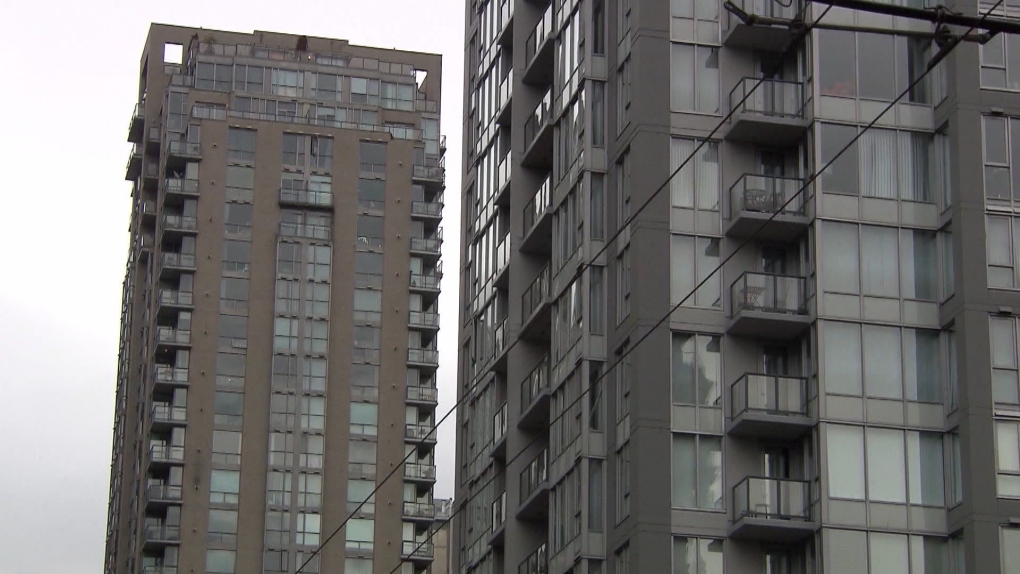B.C. continues to have highest eviction rate in Canada
 The University of British Columbia has released new data showcasing how difficult it can be to rent in B.C. (CTV)
The University of British Columbia has released new data showcasing how difficult it can be to rent in B.C. (CTV)
The University of British Columbia has released new data showcasing how difficult it can be to rent in B.C.
The report shows B.C. continues to have the highest eviction rate in the country. More than one in 10 renters reported they had been evicted between 2016 and 2021.
Indigenous renters were nearly two times more likely than average to be evicted, while tenants in social housing were less likely to be evicted.
"We have a huge problem right now." said Margareta Dovgal, a renter advocate. "There's not enough supply and it's very tight.”
The vast majority of B.C. evictions in the analysis – 85 per cent of them – were listed as "no-fault", meaning tenants were told to leave for the landlord's purposes.
“We really couldn’t say what was driving the higher eviction rate in B.C., and now this survey lets us say, well it sure does look like those higher no-fault eviction rates is driving the overall rate of eviction,” said Craig Jones, an associate director with UBC’s Housing Research Collaborative.
"The main reasons (for eviction) we were looking at were for the sale of the property and the second response was personal use by the landlord and the third response that we grouped was demolition or conversion or renovation.”
Those reasons are often not entirely truthful, according to Premier David Eby.
"We know that in some cases, landlords are willing to bend or break the rules in order to remove a tenant in order to be able to remove rent control and remove the rent,” Eby said Monday when asked about the new UBC report.
A few years ago, the provincial government created new rules requiring landlords to compensate tenants 12 months in rental payments if they did not follow through with their reason for eviction.
But according to Sarah Marsden with First United – an organization that provides essential services in the Downtown Eastside – stricter rules are needed.
"Given the severity of the impacts we've seen on our communities, that would be the minimum standard when someone’s housing is at stake, is to have a hearing and require evidence to put that onus on the landlord,” said Marsden, who is First United's director of systems change and legal.
Marsden recently created the B.C. Evictions Map to pinpoint exactly where people are being forced to move and specific details about each circumstance.
Her report shows 27 per cent of people who reported eviction said they then became homeless.
"Maybe we need to start looking at housing as a basic human need or a basic human right and not just as a commodity,” Marsden said.
CTVNews.ca Top Stories

W5 Investigates 'I never took part in beheadings': Canadian ISIS sniper has warning about future of terror group
An admitted Canadian ISIS sniper held in one of northeast Syria’s highest-security prisons has issued a stark warning about the potential resurgence of the terror group.
'Absolutely been a success': Responders looks back at 988, Canada's Suicide Crisis Helpline, one year later
In its first year, responders for Canada's Suicide Crisis Helpline, known as 988, have answered more than 300,000 calls and texts in communities nationwide.
Prime Minister Trudeau meets Donald Trump at Mar-a-Lago
Prime Minister Justin Trudeau landed in West Palm Beach, Fla., on Friday evening to meet with U.S.-president elect Donald Trump at Mar-a-Lago, sources confirm to CTV News.
Postal workers union files unfair labour practice complaint over Canada Post layoffs
The union representing Canada Post workers has filed an unfair labour practice complaint with the Canada Industrial Relations Board over the layoffs of striking employees.
Magic can't save 'Harry Potter' star Rupert Grint from a US$2.3 million tax bill
Former 'Harry Potter' film actor Rupert Grint faces a 1.8 million-pound (US$2.3 million) bill after he lost a legal battle with the tax authorities.
Nova Scotia PC win linked to overall Liberal unpopularity: political scientist
Nova Scotia Premier Tim Houston is celebrating his second consecutive majority mandate after winning the 2024 provincial election with 43 seats, up from 34. According to political science professor Jeff MacLeod, it's not difficult to figure out what has happened to Liberals, not just in Nova Scotia but in other parts of Canada.
'Mayday! Mayday! Mayday!': Details emerge in Boeing 737 incident at Montreal airport
New details suggest that there were communication issues between the pilots of a charter flight and the control tower at Montreal's Mirabel airport when a Boeing 737 made an emergency landing on Wednesday.
Hit man offered $100,000 to kill Montreal crime reporter covering his trial
Political leaders and press freedom groups on Friday were left shell-shocked after Montreal news outlet La Presse revealed that a hit man had offered $100,000 to have one of its crime reporters assassinated.
Questrade lays off undisclosed number of employees
Questrade Financial Group Inc. says it has laid off an undisclosed number of employees to better fit its business strategy.

































